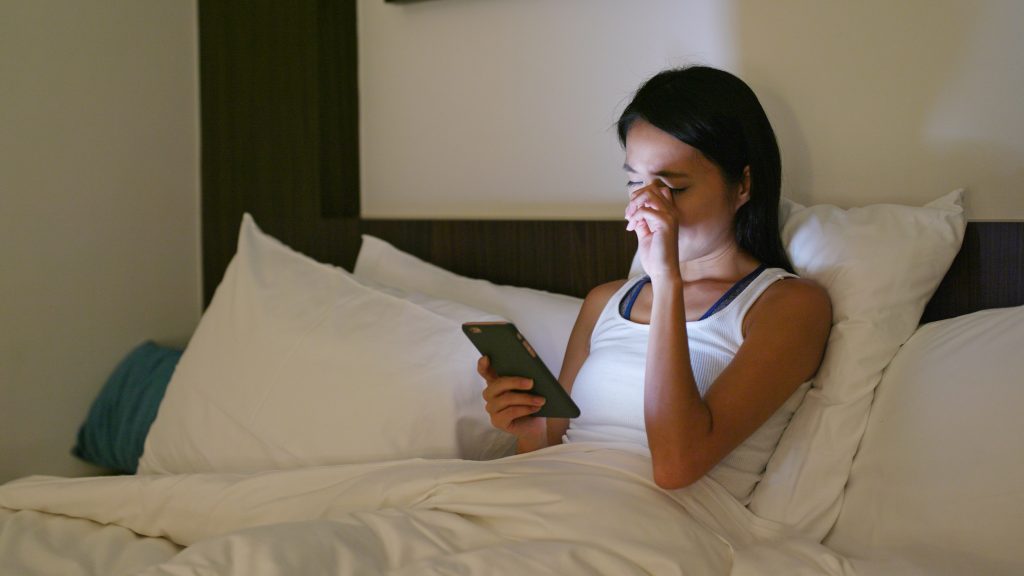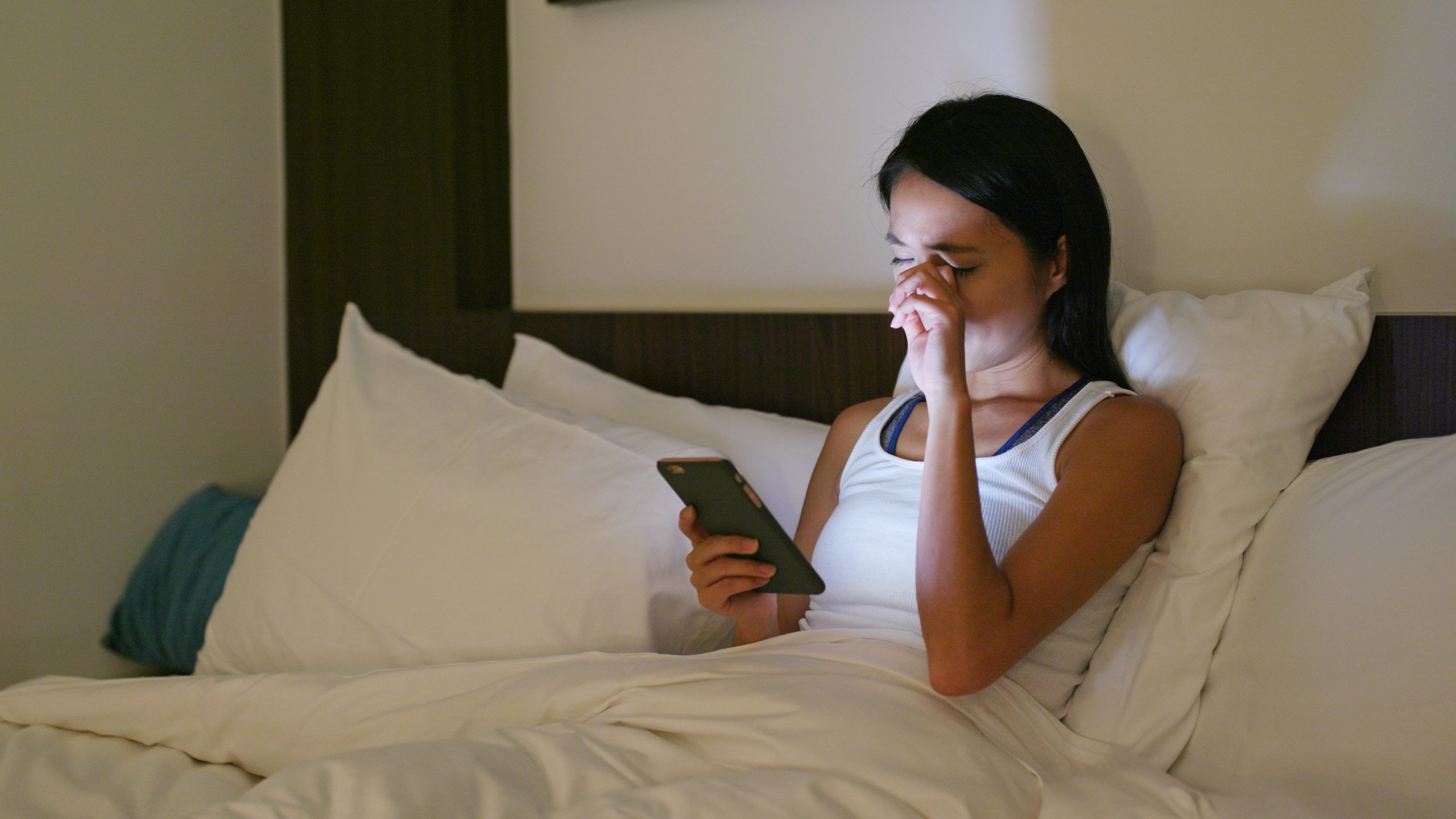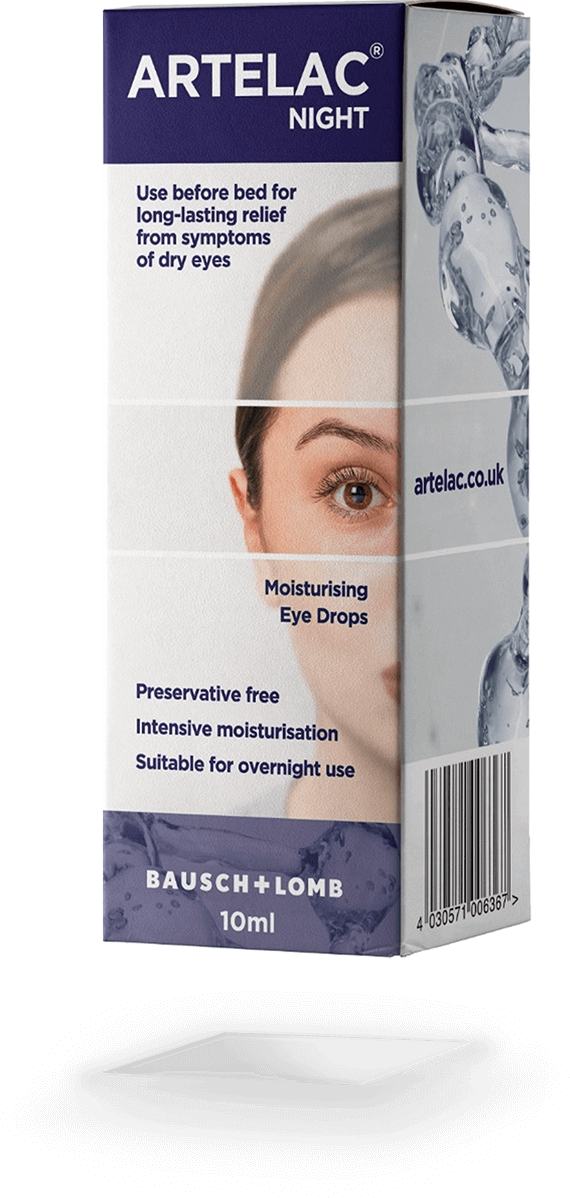Dry eyes are quite common during the day, especially for those who lead busy lives and find themselves in front of a screen for most of the day. Dry eyes are a common complaint, and many sufferers notice a flare-up of symptoms at night. If you experience from dry eyes at night, there are things you can do throughout the day to make them feel more comfortable.
What can cause dry eyes at night?
Our eyes are put through a lot during our waking hours, but there are some things we do which can have more of an impact than others.

We get dry eyes when they are lacking in moisture. This can be down to two reasons – either through not producing enough tears or due to tears evaporating too quickly1.
This can then be further aggravated through things such as:2
- Air conditioning and heating which can cause inflammation and dry out the eyes
- Looking at screens for a prolonged period of time as it results in a low blink rate, making it easier for tears to evaporate
- Exposure to the sun, dust and wind which can aggravate or speed up getting dry eyes
- The natural ageing process as those over the age of 50 tend to suffer with dry eyes due to a decrease in tear production
- Medication which produce side effects that can negatively impact tear production
- Conditions such as blepharitis which is the inflammation of the eyelid
What are the symptoms?
When you’re suffering from dry eyes they can feel very uncomfortable and have a slightly different appearance. The most common symptoms are3:
- Sore eyes
- Itchiness
- Gritty feeling
- Blurred vision
- Watery eyes
- Burning or stinging
- Tired eyes
- Red in appearance
- Sensitivity to light
- Difficulty carrying out activities which require visual concentration
How can it be treated?
There are several ways to ease any discomfort that you may be experiencing at night.
Artelac® Night is an ideal product for everybody suffering from symptoms such as tired, stressed, gritty, burning and/or tearing eyes. Designed to use before bed, it provides intensive moisturisation for immediate, long-lasting relief.
Other things you can do to help combat the condition include using a humidifier in air conditioned or heated spaces you may be spending a prolonged period of time in, for example your office space1.
Or, if you feel your dry eye may be down to the evaporation of tears while working at your computer screen the 20-20-20 rule may also help. This means that every 20 minutes you should look at something else 20 feet away for 20 seconds in order to give your eyes a bit of a rest and avoid any strain which may be caused by staring at your screen4.
Wearing contact lenses can also make your eyes feel uncomfortable at times, so if you feel this happening to you, it may be worth going back to your optician to discuss different lens options or considering switching to glasses1.
You may also be prescribed antibiotics if the cause of your dry eye is down to inflammation.
References
- NHS: Dry eyes. Available online at: https://www.nhs.uk/conditions/dry-eyes/ Accessed on: November 2019.
- Mayo Clinic: Dry Eyes. Available online at: https://www.mayoclinic.org/diseases-conditions/dry-eyes/symptoms-causes/syc-20371863 Accessed on: March 2020
- Medical News Today: What is dry eye and how can I get rid of it? Available online at: https://www.medicalnewstoday.com/articles/170743 Accessed on: February 2020.
- American Academy of Ophthalmology: Computers, digital devices and eye strain. Available online at: https://www.aao.org/eye-health/tips-prevention/computer-usage Accessed on: November 2019.

